“It is like I am making up for lost time now after over twenty years of not doing anything creatively,” reflects John Howard towards the conclusion of an hour long interview with Pennyblackmusic. “That was fine. I loved those years of working with all those different artists and on different ideas, but I did literally put the creative me into a drawer for all that time. It was only when ‘Kid in a Big World’was reissued that I started writing songs again, and since then it has been like releasing a dam. If you had said to me in the late 1970s after ‘Kid in a Big World’ had failed and it was all finished for me that this would have happened I would never have believed it.” Pianist and singer-songwriter Howard met with instant success upon his arrival in London in August of 1973. He signed to CBS within weeks of getting there , and was briefly touted as the next big thing. His debut album ‘Kid in a Big World’, one of the most overlooked albums of the 1970s, however, bombed, and he was soon dropped by CBS. Howard spent sometime playing piano in a London restaurant, but, after he broke his back after falling from a flat window and was confined to hospital for several months, and a few failed attempt at restarting it, he put his musical career on long-term hold at the end of the 1970s.. He worked briefly in a delicatessen’s, before winding up as an A&R man in record label management, where he worked for various major record companies, and became renowned for his skills at putting together budget compilations and artists’ retrospectives. ‘Kid in a Big World’ was reissued to much acclaim in 2003 and since then Howard has not stopped working on music, putting out over fifteen albums of new songs as well as two additional albums of unreleased material recorded for CBS in the 1970s. 2022 has been an especially prolific year, even by Howard’s own remarkable standards. He has published his third volume of autobiography, ‘In the Eyeline of Furtherance’, which tells of his years in record label management. It follows on from ‘Incidents Crowded With Life’ (2018) and ‘Illusions of Happiness’ (2020) which reflected on Howard’s upbringing in Ramsbottom in Lancashire, his time on CBS and his experiences as a gay man in 1970’s and 1980’s London. He has also released two albums, The first of these, ‘LOOK – The Unknown Story of Danielle Du Bois’, came out in May. Inspired by and dedicated to Howard’s friend April Ashley, one of the the first openly transsexual women, it is about a 60’s pop star Daniel Wood who vanishes, only to emerge years later in Paris as the glamorous Danielle where she becomes friends with stars such as Bridget Bardot and Josephine Baker. The second album, ‘From the Far Side of a Near Miss’, was released in September and, another concept album, is even more experimental still, consisting of one 37-minute track over which Howard meditates on real and imaginary incidents and adventures with friends and lovers. Pennyblackmusic spoke on the phone to John Howard, where he lives in Spain with his husband Neil, about both his new albums, writing and his eventful career. PB: Your new album ‘From the Far Side of a Near Miss’ consists of one 37-minute track. Did that make it a difficult album to record? JH: It made it a challenge certainly (Laughs). What happened was the lyrics came first and it became a long-form poem. It was about adventures with friends and lovers and the experiences of my many years, and it grew from that organically like a poem. There were pages and pages of it. and I thought, “I don’t want to cut this down to a three or four-minute song.” So, I went into my studio, which is at home in the courtyard, and just sat there with the piano and fiddled around with riffs. I put the lyrics in front of me as I messed about, and once I got the feel and the riffs then the tunes started to come and the chorus. When I told people that my new album was one 37-minute track, quite a few of them were expecting some sort of early Genesis type piece (Laughs), while in fact it is basically a 37-minute song with a verse and a chorus and a verse and a chorus which just builds. I think that it was inspired more than anything by Roy Harper because he used to do, not necessarily 37-minute pieces, but these long-form songs. He was probably one of my earliest influences. When I saw him at the Free Trade Hall in Manchester in 1970, he sat there on a stool on his own with no backing, and it was totally mesmerising. The biggest challenge was that it is very easy to start speeding up or slowing down. I don’t use click tracks. I just sit at the piano and record live, so I wanted to make sure that the rhythm remained constant throughout, which was definitely tough going. PB: Do you plan to play ‘From the Far Side of a Near Miss’ live? JH: I think that it is probably unlikely (Laughs). The main reason is that playing live from where I am based in Spain and just getting over to the UK is becoming difficult logistically. The last time I did a show in the UK was in 2019 and then lockdown happened. Neil and have a lot of animals. (t is very difficult for us to get dog sitters. I can’t drive anymore because my eyesight is not very good now, and apart from all that we would have to find somewhere to stay for three or four days. If I ever did it on stage. I think that I would have to have a selection of musicians to keep that build going, arrangement-wise. I think that is important for a song like that. I have done eight or nine- minute songs on stage and that seemed to work quite well 37 minutes would , however, perhaps be too much of a challenge for people. but I think if I was to do it I would really like to do it with a small string section and some percussionists. That would probably work better. I think that it would have more impact too. PB: As you have said, ‘From the Far Side of a Near Miss’ is a collection of recollections and conversations with lovers and friends, some imaginary, some real. Do you see it in some ways being about the conversations that you wish you had had with these people? JH: That is so true. There are so many ‘what ifs’ with friendships over the years. Quite often I sit imagining conversations that I could have had PB: The front cover has a photograph of you as a 21-year old in Cannes at the time of ‘Kid in a Big World’ in early 1974. Why did you put that on the front cover? JH: The CD cover has on the back has a very similar picture of me now. The photo on It is a bit like the ‘Kid in a Big World’ sleeve, but I have never used it on an album or anything else before. In it I am standing on the roof of a hotel in Cannes (Laughs) just having come down from Ramsbottom in Lancashire, and here I am just signed to CBS, and I have just done the theme song for the Peter Fonda/William Holden movie ;Open Season’, and I am about to go into Abbey Road Studios to make my first album. I always see when I see that photo this person looking out and thinking “My God! What a future I could have?” ‘From the Far Side of a Near Miss’ has that as one of its main themes, and it is both about looking forward and looking back It is quite a glamorous photo. People have a lot of nostalgia for the 1970s. It was a stylish decade with Roxy Music and Bowie and so on. I asked Ian Button, who designed the sleeve of the album, if he could come up with something like a film poster with a Broadway typeface on the name. It was a concept that I wasn’t sure would work, but so far people have reacted to it really well. PB: What do you make of that young man on the cover now? What advice would you have for him almost half a century later? JH: I don’t know really (Laughs). Although I did dream of success and I was a very ambitious young man, and at the time probably for a good reason., that period was something of a dream come true. There was a lot of failure as well just around the corner, and I think that I dealt with that quite well. You get all these knockdowns and you just thave to get up and get on with it, so I think I would probably say to myself, “You did okay really.” PB: In the space of about four months you wound up in Cannes after coming down to London from Lancashire. Do you think that in hindsight things took place too quickly? JH: Yes, I do. I think that if I had just gone down to London which I did in August ’73, and if I hadn’t been signed so quickly by management, and hadn’t been thrust into this world of “Let’s dress you up in gorgeous clothes and Fedora hats and take you to the best restaurants and take you to Cannes,” if that hadn’t happened so quickly, then my musical career would have lasted longer. Over three years I had built up a good following in Lancashire playing in the folk clubs and doing my own songs. I was filling venues there. I thought, “I am twenty now. I have been doing this since I was seventeen. I will try and do the same thing in London,” and then the idea I had was that I would go down to London and start working in the folk clubs, build up a following, spend two or three years doing that, and hopefully someone from a record label, would come along, would be in an audience and see me and sign me and we would do an album. What happened is that I stopped gigging. Once I was signed to the manager, and once I got the record deal, it all became about the record and there were no more gigs. So, there was no more spreading of the word. There was this great assumption amongst my management –Bless them! They were really great in so many ways - and the record label that somehow my very first album was going to knock everybody for six, and I was going to be this huge star. At twenty-one you think, “Well that is great. They must know what they are talking about. That sounds like a brilliant idea,” but it was an absolute impossibility, When 'Kid in a Big World' came out in ’75, the singer-songwriter period was dying and we were in the middle of disco and it was just before punk, so it came at very difficult period in terms of expecting a singer-songwriter to be a huge star, and just because he had an album out that they believed in. PB: Musicians in those days did not always tend to meet with success which was instant. It took artists like Bowie and Roxy Music three or four records sometimes. JH: Absolutely. Bowie was going in the mid-1960s and released all sorts of records, which are now considered absolute classics, but at the time were completely ignored. I think that Roxy were around for a bit as well, weren’t they, doing the art college circuit before they took off? It was a year or two anyway. There was The Beatles as well. It took The Beatles years from when they first set out before they became big. There was this huge expectation on ‘Kid in a Big World’, and, when it didn’t do well and basically flopped and was forgotten about within weeks of it being released, both the record company and my management panicked. There was this whole thing of “Now what do we do? The vision, the plan has not happened, so what do we do with him now?” There was no plan B whatsoever. In their mind there wasn’t going to be. Stuart my manager, was a great guy, a lovely manager, a really fantastic person. When I first met him at the Troubadour in Earls Court where I was doing a residency , he spoke to me straight after the gig, and he said to me, “You are the next Noel Coward,” and that was that. He signed me the following day, took me out to all these restaurants in London, got my hair done, a new outfit, stylish this, stylish that, and I was swept up in it as you would be. I was this kid from Ramsbottom, thinking, “This is incredible (Laughs).” I think that all that expectation in the end did fail me. It ruined the future for me at least in the ‘70s anyway. PB: There is a chorus line on ‘From the Far Side of a Near Miss’ of “Here we are, the past behind us, not much of a future.” Is that directed at yourself? JH: I am 70 next year, but I think it is more directed at how much future does one have because when you are young the future does not really exist. You don’t really think about it. You sort of assume that you are immortal whereas in fifteen years time I will be 85 (Laughs). In twenty years time I will be 90. We moved to Spain fifteen years ago, and when you think back fifteen years to when we moved to Spain and how that felt, and then you try and think fifteen years again in terms of time that is quite a thought. Thank goodness, I still have my voice. I think that is partially because I have never done much gigging and I have never smoked, so as long as I can sing I will keep recording, but as soon as that starts to go I will probably stop because I don’t see the point of doing records with people going, “Mm, his voice is a bit rough now.” I want people to think that this is still good stuff. PB: Is that why you going through such a creative stage at the moment because you might not always be able to? JH: That is absolutely right. I want to get things done while I can. It has been the same with the books too. It was a shock when the first book was published. I had no expectation whatsoever that it would get published. It started out as a monthly chapter that I put on Facebook and on my website, and the publisher liked it enough to put out a book, and now there have been three books. PB: PB: You are totally open in them about your own failings, and your sexual behaviour in the 1970s and early 1980s. People have responded well to them because they are so refreshingly truthful and honest. JH: I can’t see the point in doing an autobiography which is not really What I didn’t want them to be was “Then I made an album, and then I played a gig.” I wanted them to be as personal as possible, but I tried to be careful as well about not hurting other people. There were one or two things which I could have said but didn’t, but the new book only goes up to 2001 and because it was all so long ago ithat didn’t matter quite so much as it might have done if it was more recent. PB: You have decided not to publish a fourth volume? Is that why, because you are concerned about hurting people? JH: It is certainly one of the reasons Our life is, however, more calm and relaxed, not driven particularly by anything or anybody, and there is a lot less to write about There is a book that I am thinking of doing. It will be a short book about my time during 2002 and 2003 when I worked on the ferries, playing piano on the ferry in the ferry bar, just before ‘Kid in a Big World’ was reissued. There are some great stories in that, and I might put that together. They are great, fun stories and I am thinking of doing that. I am also writing my first novel at the moment which is about time travel. It takes place over two hundred years, and will come out some time next year. PB: It is fascinating that you are writing fiction now because ‘Look’, your last album, was inspired by April Ashley, but you chose not to write a book about April, but about a fictional character Danielle instead. JH: I didn’t want to write anything about April herself, because she wrote two autobiographies. There were other biographies and documentaries about her as well, so all of those facts were there. What I wanted to do was take her character as an inspiration for someone else. I wanted also to about someone who was a pop singer and who made records (Laughs). I also wanted to bring in the glamour of Paris and the ‘60s, so all these elements came into that story. PB: Danielle like April comes across as a pioneer. JH: Very much so. April was, of course, a huge pioneer, so i wanted to get that across as well and I liked the idea that many years later she is rediscovered living in Paris and does this show which turns her into this sensation which the character doesn’t particularly enjoy. She is very happy to live her life quietly really, just enjoy her life in Paris through to her death. That was also different to April in that she became an absolute phenomenon and loved that. She loved the fact that she was recognised finally for who she was and what an interesting person she was. It is very sad that she died a month before the album came out because I was looking forward to sending her a copy, PB: Last question. You have done two concept albums in a row. What will your next album be about? JH: I am talking to Robert Cochrane at the moment. I recorded an album with Robert, ‘The Dangerous Hours’, back in 2004, and that came out as a result of ‘Kid in a Big World’ being reissued. He got in touch with me then and out of that came ‘The Dangerous Hours’. We had been talking about amazingly how in 2024 it will be twenty years since we did that, so Rob –true to form - as soon as I brought up the subject with him sent to me all these reams of poetry from him (Laughs). That is what happened first time. He just sent me exercise books full of poems for ‘The Dangerous Hours’ and I selected fourteen of those to make songs from, and the same thing happened, and they are beautiful poems, so I will probably start writing that in the next few months once I have got the novel done, and then that will be the next project (Laughs). PB: Thank you.
Band Links:-
http://kidinabigworld.co.uk/https://www.facebook.com/johnhowardsongs/
Play in YouTube:-
Picture Gallery:-
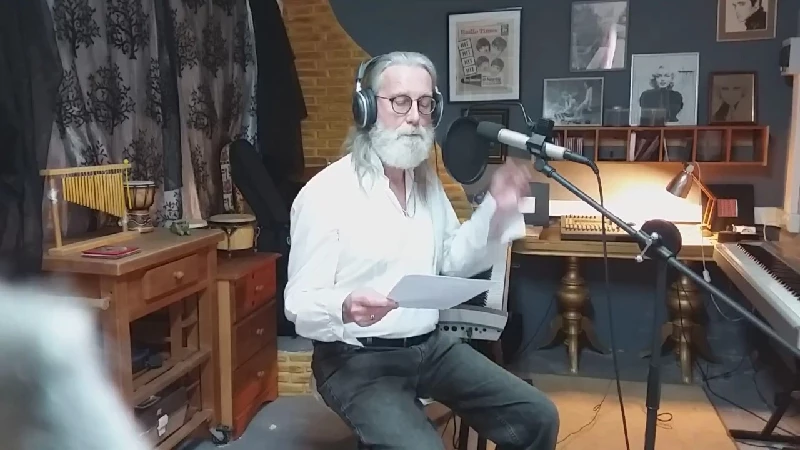
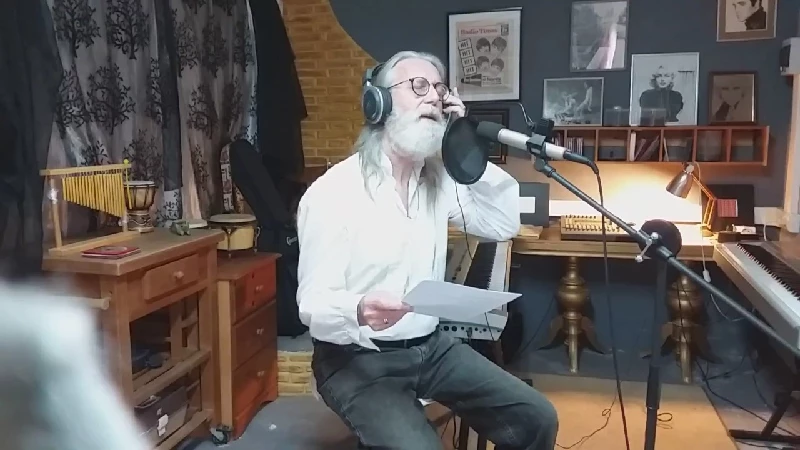
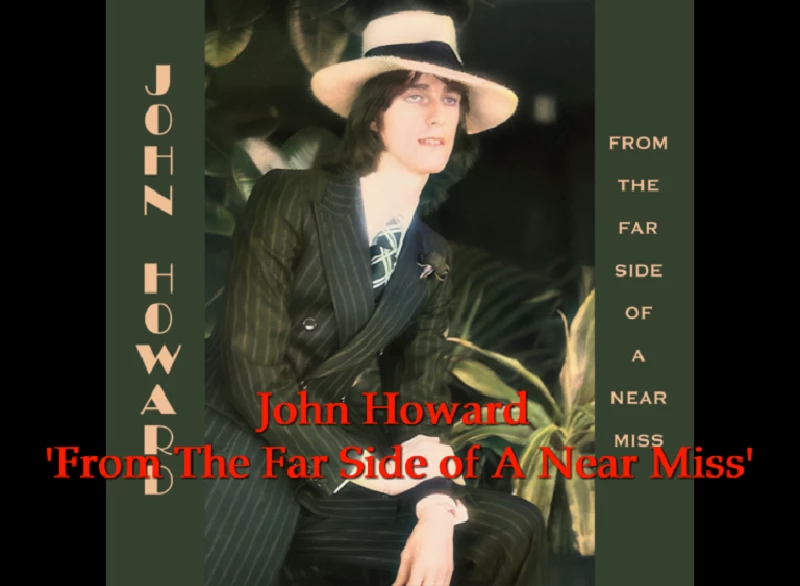
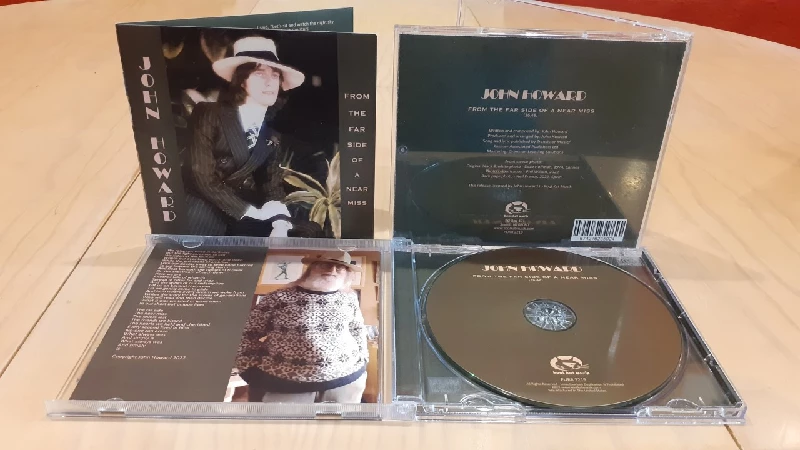
intro
Singer-songwriter and pianist John Howard speaks to John Clarkson about both his new albums, ‘LOOK – The Unknown Story of Danielle Du Bois’ and ‘From the Far Side of a Near Miss', writing and his eventful career.
interviews |
|
Interview (2020) |
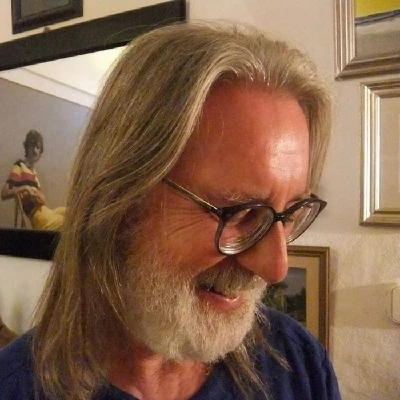
|
| John Howard speaks to Ben Howarth about his as-yet-untitled new album, the benefits of home recording and the next two volumes of his memoir. |
| Interview (2018) |
profiles |
|
Illusions of Happiness (2020) |
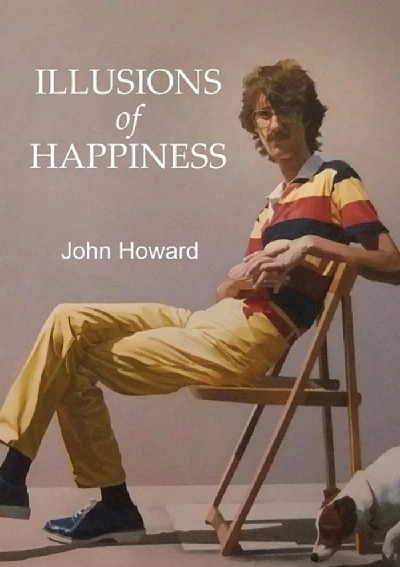
|
| Returning with the second volume of a three-part autobiography, John Howard takes Ben Howarth and John Clarkson on a compelling guided tour of the fringes of the late-70s, early 80s music industry, while also navigating an increasingly complex personal life in the shadow of the Aids crisis. |
| Profile (2018) |
reviews |
|
To The Left Of The Moon's Reflection (2020) |
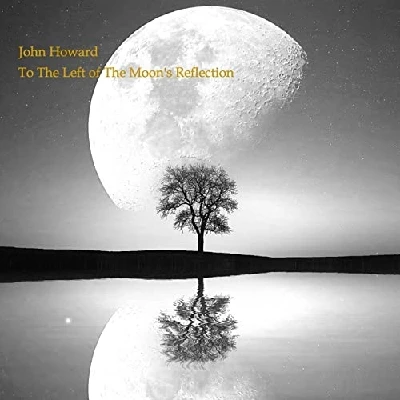
|
| Contemplative, experimental and highly rewarding seventeenth album from singer-songwriter, pianist and writer John Howard |
| Cut the Wire (2019) |
| Across the Door Sill (2016) |
| Songs For Randall (2016) |
| Hello My Name Is... (2014) |
| Songs For Someone (2014) |
| Live at the Servant Jazz Quarters (2014) |
| Storeys (2013) |
most viewed articles
current edition
Shrag - Huw Stephens Session 08.12.10 and Marc Riley Session 21.03.12Gary Numan - Berserker
Razorlight - Photoscapes
John Hassall - Photoscapes
Max Bianco and the BlueHearts - Troubadour, London, 29/3/2025
Primal Scream - Photoscapes
Roberta Flack - 1937 - 2025
Waeve - Club Academy, Manchester, 18/3/2025
previous editions
Heavenly - P.U.N.K. Girl EPManic Street Preachers - (Gig of a Lifetime) Millennium Stadium, Cardiff, December 1999
Boomtown Rats - Ten Songs That Made Me Love....
Beautiful South - Ten Songs That Made Me Love...
Barrie Barlow - Interview
Oasis - Oasis, Earl's Court, London, 1995
Trudie Myerscough-Harris - Interview
Dwina Gibb - Interview
Pixies - Ten Songs That Made Me Love...
Doris Brendel - Interview
most viewed reviews
related articles |
|
Rotifer: Live Review (2014 |
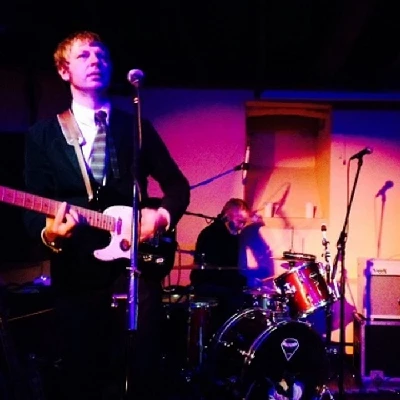
|
| In the second of two showcases from record label and collective Gare du Nord, Ben Howarth at the Servant Jazz Quarters in London enjoys sets from indie trio Rotifer, rediscovered 70's singer-songwriter John Howard and Austrian singer-songwriter Mel Mayr who was playing her first British gig |
Pennyblackmusic Regular Contributors
Adrian Janes
Amanda J. Window
Andrew Twambley
Anthony Dhanendran
Benjamin Howarth
Cila Warncke
Daniel Cressey
Darren Aston
Dastardly
Dave Goodwin
Denzil Watson
Dominic B. Simpson
Eoghan Lyng
Fiona Hutchings
Harry Sherriff
Helen Tipping
Jamie Rowland
John Clarkson
Julie Cruickshank
Kimberly Bright
Lisa Torem
Maarten Schiethart